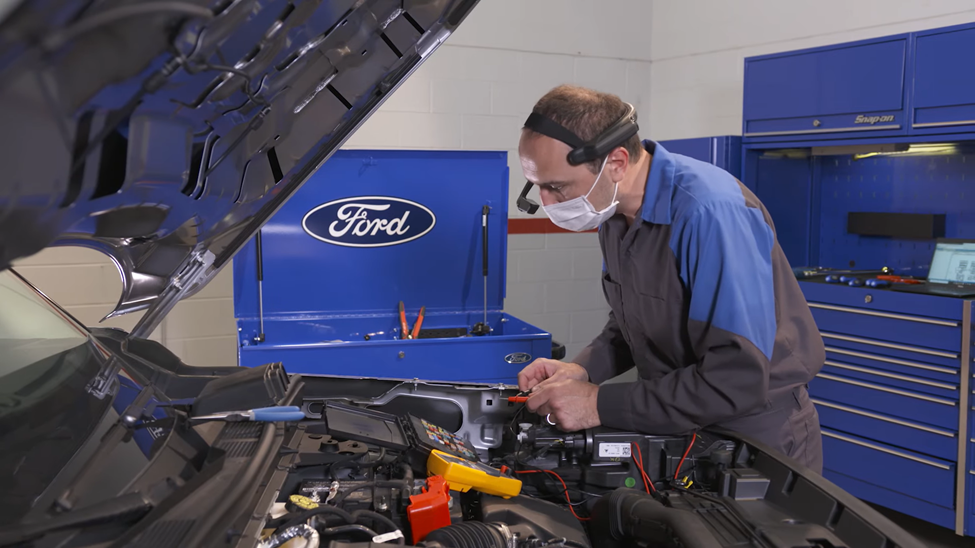
Ford dealerships across the US now have access to remote viewing technology allowing them to receive real-time assistance for customer repairs from staff at the Ford Technical Assistance Center (TAC) in Dearborn.
“The remote technology is designed to assist the technicians as they’re working on vehicles with the goal of increasing efficiency and decreasing down time for customers,” said David Green, Ford general service equipment programme specialist. “This technology modernises and simplifies our operations, benefiting everyone involved.”
The two-way, hands-free electronic headset, known as See What I See (SWIS), allows for both visual and audio communication between the dealership technicians and the assistance centre.
The technology uses remote assistance software which allows the technical assistance team to see what the dealership tech is seeing while they work on the vehicle in real time. SWIS’s augmented reality capability allows TAC staff to display modified or enhanced images on the headset for the dealer technicians to view.
According to Green: “We had one case where a technician reported the vehicle would not recognize the low tyre pressure sensors. When the tech contacted the Hotline using SWIS, they quickly found out they were using the wrong tool when the tech held it up in front of the camera. Once the right tool was used, everything was programmed just the way it should.”
At the TAC headquarters, a team of about 150 technicians receives about 5,000 calls from dealership technicians across the US each week looking for support or answers regarding a variety of issues. Of those, about 200 cannot be diagnosed by phone; field agents must be sent out to check out the issue in person.
“SWIS definitely helps get our customers back on the road more quickly. We’ve had some wiring situations that we were able to fix in a few hours versus a few days using See What I See and that’s really valuable,” said Susan Padro, service manager at Mullinax Ford in Apopka, Florida.
Ford has activated 1,200 of the headsets so far with more than 350 SWIS calls to TAC in the last 90 days. All US-based dealers should have SWIS by next November.
Currently, SWIS is for diagnostic assistance, but designers are working to enhance the headsets to add more specific use cases such as H-VAC concerns. Other uses cases include gaining prior approval before replacing a windscreen by sending pictures of the defect instantly. Fleets are looking to use the headset to assist a technician on site with certain electric vehicle repairs, instead sending an engineer, allowing for faster repairs and savings on travel costs. Mobile service teams are also looking at using SWIS to remote in from someone’s driveway where they are performing a service like tyre changes.
Training remotely using the headset between an instructor and a student is another valuable use case to avoid having to attend a distant training centre.
